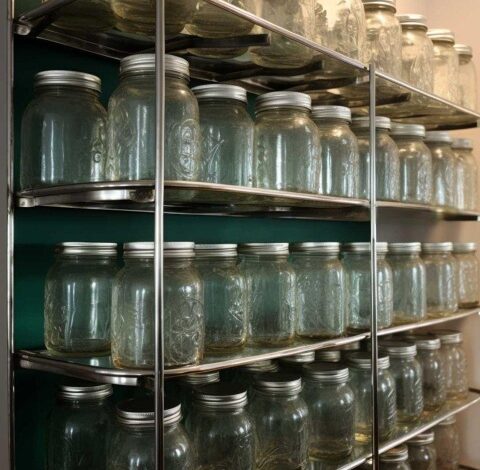Most people store empty jars wrong. Here’s the right way to do it

In an era of rapid technological advancements, some of the most valuable lessons are still rooted in the wisdom of our grandparents. One such timeless trend that has recently resurfaced is the practice of storing clean water in empty jars.
ADVERTISEMENT
The Wisdom of Our Grandparents
The message above shared the experience of an individual who learned this practice from their grandmother back in the 1960s. The essence of the lesson is simple: an empty jar takes up just as much space as a full one. Therefore, instead of leaving jars truly empty, why not fill them with clean water?
ADVERTISEMENT
Why Store Water in Jars?
- Emergency Preparedness:
- Natural disasters like water freezes, power outages, and unexpected disruptions can leave us without access to clean water for an extended period.
- Having jars of clean water on hand can be a lifesaver in such situations.
- Sustainability:
- Reusing glass jars to store water is an eco-friendly choice.
- It reduces the need for disposable plastic water bottles and promotes a more sustainable lifestyle.
- Cost-Efficiency:
- Storing water in jars is cost-effective.
- It eliminates the need to purchase bottled water, which can be expensive in the long run.
- Space Optimization:
- Water-filled jars can be placed strategically in your pantry or storage areas, utilizing space that might otherwise go to waste.
- Peace of Mind:
- Knowing you have a supply of clean water readily available can provide peace of mind, especially in regions prone to water shortages or during extreme weather events.
Best Practices for Storing Water in Jars
- Use Clean, Sterile Jars:
- Ensure the jars are clean and sterile before filling them with water.
- Wash them thoroughly and sanitize them to prevent any contamination.
- Boil and Seal:
- While water is generally safe, you can further ensure its purity by boiling it before filling the jars.
- Once filled, seal the jars tightly to prevent any contamination.
- Label and Date:
- Label the jars with the date of filling to keep track of water freshness.
- Rotate the water periodically to ensure it remains safe for consumption.
- Store in a Cool, Dark Place:
- Store the jars in a cool, dark place away from direct sunlight to prevent algae growth and maintain water quality.
- Regularly Inspect and Replace:
- Periodically inspect the jars for any signs of leakage or contamination.
- Replace the water if necessary.




